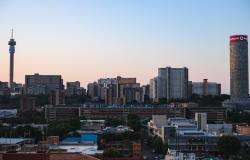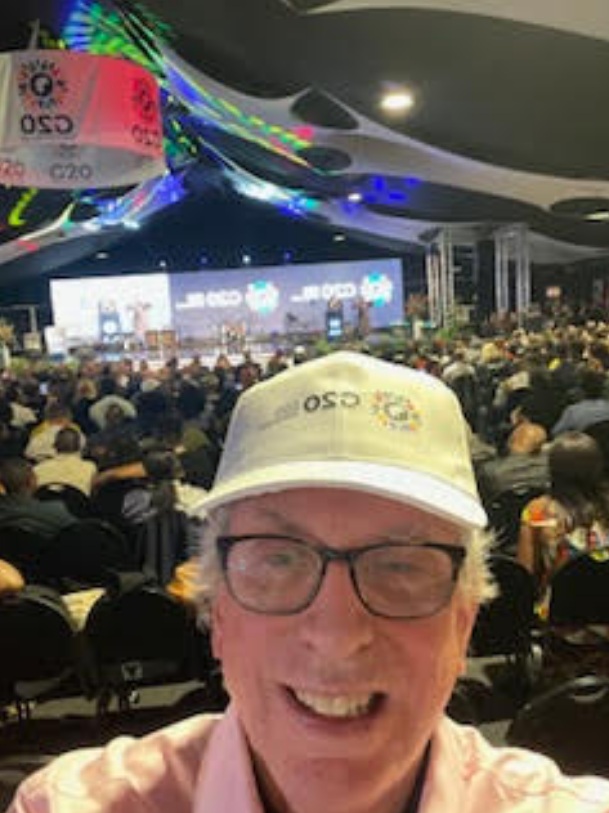South Africa pushes back against the Mood of Pessimism at the G20 Social Summit

Andrew Cooper, University Research Chair at the University of Waterloo, is in Johannesburg for the G20 Summit.
I was prepared to be extremely gloomy about the South African summit. A dominant over-hanging contributor to the mood of pessimism has been the obstructionist approach taken regarding the summit by President Trump: with his refusal to attend in person (even though he is the host in 2026) amplified by his decision for the United States (US) to boycott the summit completely. On top of that problem, in terms of substance, the ambitious agenda of the summit (Solidarity, Equality, Sustainability) runs up against severe headwinds: with regressive global trends moving away not towards meeting these objectives.
Plus, the domestic political context of South Africa holding the presidency is not without its own problematic complications. Attention for the G20 in the South African media has had to compete with a set of stories that emphasize a degree of disarray, including a mysterious power outage prior to the summit. Rumours, albeit unsubstantiated, that President Cyril Ramaphosa will step down once the G20 is over adds an extra element of uncertainty.
 Yet, an impressive antidote to the negative image around the summit was provided by the G20 Social Summit on November 19-20. Such an event was a carryover from an idea put into place by President Lula da Silva of Brazil in 2024, as a vehicle for connecting the G20 to wider population constituencies.
Yet, an impressive antidote to the negative image around the summit was provided by the G20 Social Summit on November 19-20. Such an event was a carryover from an idea put into place by President Lula da Silva of Brazil in 2024, as a vehicle for connecting the G20 to wider population constituencies.
On style alone, the holding of the 2025 Social Summit played dividends for President Ramaphosa. Instead of only utilising embedded engagement groups – such as the Business 20 - Ramaphosa could meet with diffuse representatives that had been involved in breakout groups before his appearance on the morning of the second day of the Social Summit. To be sure, the declarations of these groups were, if anything, even more aspirational than the agenda of the G20 itself. But as a sounding board, attention devoted to themes addressed by these groups - Digital Inclusion and Equitable Transformation, Trade, Resilience & Inclusive Value Chains, Inclusive Climate Justice, a Just Transition, and Energy Democracy, A Just and Sustainable Finance and International Financial Architecture, and Building Momentum for the Achievements of the SDGs and Agenda 2063 - was emotively compelling (with the entire process animated by singing and dancing as evidenced by the attached video).
If there was a domestic political logic embedded into the Social Summit, nonetheless, the implications for the future of global summitry are also saliant. Above all, the address by President Ramaphosa at the Social Summit signalled that the patience of South Africa over the Trump/US approach was wearing thin. After all, South Africa (and Ramaphosa) had suffered a barrage of misinformation over the treatment of white people generally and Afrikaners specifically in the run up to the summit not only by Trump (including at the meeting at the Oval Office between Trump and Ramaphosa in May 2025) but by Elon Musk. Attacks it must be added were met at the time by composed and creative (including bringing in South African golfers as part of a charm offensive).
At the Social Summit Ramaphosa hit back about the treatment given to South Africa. In a telling retort, the South African president told a cheering crowd that the time for utilizing global events to impose a ‘narrow global agenda’ was over: adding that no country should be able to bully another.
This intervention is interesting standing alone. But what is far more significant, is the manner by which Ramaphosa explicitly linked the aspirations not only of South Africa but the Global South to summitry. In terms of a narrative, what jumps out is the downplaying of the G20 as a collective crisis group/steering committee as it was developed both in the late 1990s at the level of finance ministers and central bankers and then at the leaders’ level in 2008.
Rather the narrative at the core of Ramaphosa’s address privileged two inter-related components that underscore the reality that the South Africa summit is the first to be held on the African continent under the presidency of a Global South country with a unique experience of its own. On the one hand, the record of South Africa’s struggle against apartheid was pointed to, with special reference to the 1955 meeting of the Congress of the People and the adoption of the Freedom Charter. And, on the other hand, the linkage was made strongly between current summitry and the seminal event of the 1955 Bandung conference, made up of the wave of countries speaking for themselves after independence.

This tilt in terms of the privileging of summitry should not be over-drawn. Even with the self-exclusion of the US, other G7 countries and the European Union have taken stances highly differentiated from the Trump/US approach. After the Social Summit, for example, Ramaphosa went on to meet the Presidents of the EU Council and Commission.
That said, the significance of the tilt should not be downplayed either. One risk into the future is that the G20 will continue to move away from its apex status, with a sharpened division between the G7 and the BRICS plus members. Accordingly, instead of being the pivotal go to forum, leaders will choose to attend (or not to attend) based on what country is hosting, as Trump is doing this year. And in parallel fashion, do other countries become proxies, in how Argentina has taken up issues of priority to the Trump administration.
Do Global South countries, therefore, stay away from the US G20 summit in December 2026 in copycat fashion? Or do they downgrade the type of representative sent? Or, more likely, are some, notably South Africa, denied invitations when the 2026 G20 is due to be hosted at the Trump National Doral Miami golf resort in Florida.
Still, this commentary is a prelude to the G20 Summit on November22-23, an event meriting deeper coverage.
Photo by Sherissa R
And author's own.


